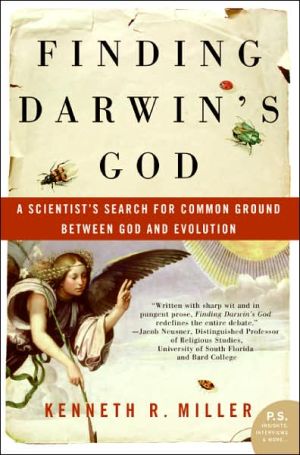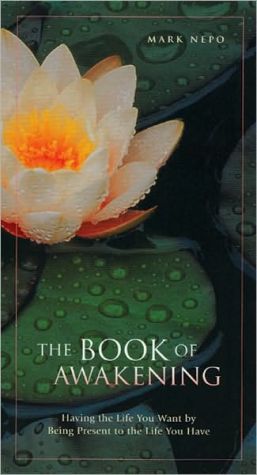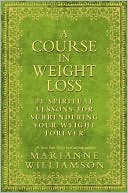Finding Darwin's God: A Scientist's Search for Common Ground between God and Evolution
From a leading authority on the evolution debates comes this critically acclaimed investigation into one of the most controversial topics of our times
Search in google:
From a leading authority on the evolution debates comes this critically acclaimed investigation into one of the most controversial topics of our times Publishers Weekly Though he takes a different tack than Wyller (above), Miller tries to draw a straight line between two apparently opposing ideas: the theory of evolution and belief in a creator. In a more humanistic account than Wyller's, Miller, a professor of biology at Brown University, explains the difference between evolution as validated scientific fact and as an evolving theory. He illustrates his contentions with examples from astronomy, geology, physics and molecular biology, confronting the illogic of creationists with persuasive reasons based on the known physical properties of the universe and the demonstrable effects of time on the radioactivity of various elements. Then standing firmly on Darwinian ground, he turns to take on, with equal vigor, his outspoken colleagues in science who espouse a materialistic, agnostic or atheistic vision of reality. Along the way, he addresses such important questions as free will in a planned universe. Miller is particularly incisive when he discusses the emotional reasons why many people oppose evolution and the scientific community's befuddled, often hostile, reaction to sincere religious belief. Throughout, he displays an impressive fairness, which he communicates in friendly, conversational prose. This is a book that will stir readers of both science and theology, perhaps satisfying neither, but challenging both to open their minds. Illustrations. Author tour. (Oct.) Copyright 1999 Cahners Business Information.
Chapter One\ \ Darwin's Apple\ \ Where are you from?" It's the kind of question that strangers, trying to become friends, will often ask one another.\ No one can begin to know another until he knows where that person is from. Not just his family, school, and town, but everything that has helped to bring him to this point in his life.\ This book is about the ultimate "Where are you from?" question. As important as it may be to understand one's ethnic origin and cultural identity, the bigger question is one that every child, sooner or later, asks of his or her parents: "Where did people come from?" In each culture according to its fashion, every child gets an answer. For me, a little boy growing up in suburban New Jersey in the 1950s, the answer came in the form of the first couplet of my religious training:\ Question: "Who made us?"\ Answer: "God made us."\ Every year, that training reached deeper, demanded more, and grappled with more sophisticated questions of faith and virtue. But every year, it began with exactly the same question: Who made us? And that question was always followed by exactly the same answer. God made us.\ In a different building, only a few hundred yards away from the red brick walls of St. Mary's, I began to find another answer to that question. This other school did not always grapple with the same straightforward questions of right and wrong that were the weekly fare of our catechism, but it taught its students to believe something at least as intoxicating as the divinity of their origins--the possibility that the world around us was constructed insuch a way that we could actually make sense of it. That great secular faith drew strength from a culture in which science seemed to fuel not only the fires of imagination, but the fires of industry as well. And that faith extended to living things, which yielded, like everything else in the natural world, to the analysis of science.\ Looking back on my youth, I am struck by how meticulously those two aspects of education were channeled to avoid conflict. Teachers on both sides, secular and religious, were careful to avoid pointing out the dramatic clash between the most fundamental aspects of their world views. No one ever suggested a catechism with a different beginning:\ Question: "Who made us?"\ Answer: "Evolution made us."\ Nonetheless, the conflict between those two points of view is real. The traditional Western view of humanity as the children of God once had a direct, literal basis in the historical narrative of sacred scripture. Not only was God our spiritual father, He was also the direct agent of our creation. His actions were the immediate cause of our existence, and His planning and engineering skills were manifest in every aspect of our bodies. By extension, the splendor and diversity of the living world that surrounds us testified to the very same care and skill.\ Charles Darwin himself recognized how profoundly scientific analysis had changed this view of life and humanity when he wrote the historical sketch that preceded his great work, The Origin of Species by Means of Natural Selection. Generously (and correctly) he gave credit for this transformation to the now much-maligned French naturalist Jean Baptiste Lamarck:\ \ In these works, he [Lamarck] upholds the doctrine that all species, including man, are descended from other species. He first did the eminent service of arousing attention to the probability of all change in the organic, as well as in the inorganic world, being the result of law, and not of miraculous interposition.\ \ Today it is very clear that the line of reasoning Darwin attributed to Lamarck has emerged triumphant. Change in the inorganic and organic world is no longer attributed to "miraculous interposition." It once was possible to point to a humble seed and invoke the attention of the Almighty as the only possible explanation for how such an ordinary object could grow into a mighty tree. Today we look into the seed itself, examine the program of gene expression that begins at germination, and seek our answers in the rich complexities of molecular biology and biochemistry. This does not mean that we have reduced the seedling to mere chemistry or physics. It means instead that we have elevated our understanding to appreciate the living plant in a way that lends wonder and delight to our view of nature.\ My purpose in this book is to attempt something that is generally avoided. I want to ask a question that most of my colleagues shy away from, and to attack head-on the defenses that many of us have built up in our unwillingness to reconcile the two different answers to the question of "Who made us?" The question is whether or not God and evolution can coexist.\ There is no need to break new scientific ground in approaching this question. The century and a half since Darwin has provided us with more than enough time to flesh out the details of his abstract outline on the process of biological change. To add to Darwin's ideas we have half a century of molecular biology, bold explorations of space and time provided by the physical sciences, an understanding of earth's history from geology, and even an appreciation of the limits of our most powerful reasoning tool--mathematics. We have to be willing to bring all these resources to bear in unfamiliar surroundings, to apply them in new ways, and to ask the sorts of questions that are not commonly heard in scientific circles.\ We can by starting with the man himself, Charles Darwin, a writer of exceptional clarity whose words and ideas remain accessible, even today.
Preface xiDarwin's Apple 1Eden's Children 18God the Charlatan 57God the Magician 81God the Mechanic 129The Gods of Disbelief 165Beyond Materialism 192The Road Back Home 220Finding Darwin's God 260Notes 293Bibliography 317Index 325
\ Book ListAn act of intellectual daring and spiritual integrity...a refreshing departure fromthe tired polemics of the evolution wars.\ \ \ \ \ Publishers Weekly - Publisher's Weekly\ Though he takes a different tack than Wyller (above), Miller tries to draw a straight line between two apparently opposing ideas: the theory of evolution and belief in a creator. In a more humanistic account than Wyller's, Miller, a professor of biology at Brown University, explains the difference between evolution as validated scientific fact and as an evolving theory. He illustrates his contentions with examples from astronomy, geology, physics and molecular biology, confronting the illogic of creationists with persuasive reasons based on the known physical properties of the universe and the demonstrable effects of time on the radioactivity of various elements. Then standing firmly on Darwinian ground, he turns to take on, with equal vigor, his outspoken colleagues in science who espouse a materialistic, agnostic or atheistic vision of reality. Along the way, he addresses such important questions as free will in a planned universe. Miller is particularly incisive when he discusses the emotional reasons why many people oppose evolution and the scientific community's befuddled, often hostile, reaction to sincere religious belief. Throughout, he displays an impressive fairness, which he communicates in friendly, conversational prose. This is a book that will stir readers of both science and theology, perhaps satisfying neither, but challenging both to open their minds. Illustrations. Author tour. (Oct.) Copyright 1999 Cahners Business Information.\ \ \ Marley MarlMiller's scientific arguments are compelling, presented in terms that any layman could understand. He's never condescending or dull. Particularly entertaining is his response to the creationist's view that the earth is no more than 10,000 years old.\ —Christian Science Monitor\ \ \ \ \ Kirkus ReviewsA well-reasoned, intelligent text describing why followers of mainstream religions can also embrace the theory of evolution. Miller (Brown Univ.) presents the straightforward arguments that evolution is based on: Plants and animals show wide variation, and these variations must compete for limited resources. These statements displace the necessity of a creator to explain the origin of plants and animals. Miller argues, however, that this displacement does not necessarily disprove the existence of one. He relates his own experiences teaching introductory biology classes, during which students are surprised to discover that he believes in God. His arguments for the theory of evolution, while sometimes leaning toward the simplistic, persuasively point out that we often derive scientific facts (the composition of the sun, for example) from indirect evidence. The fact that we did not observe evolution taking place does not prevent us from supporting the theory empirically from the abundant fossil record. Miller similarly examines other arguments used against evolution, such as the age of the earth, punctuated equilibrium, and irreducible complexity, carefully examining each one. The picture he paints, aided by charts and graphs, is of evolution as a sound and proven scientific principle. Some creationists whose arguments are also examined seem to want to "raise reasonable doubt" against the theory of evolution, rather than present scientific evidence for an alternate theory. The author is disturbed that "so many would have pinned their religious hopes on the inability of science to explain the natural world." He is very much aware that reasoned arguments alone will not end the debate,placing his hopes instead on his conclusion that western religions and evolution are not mutually exclusive ideas. Although sounding like a high school textbook at times, an honest and heartfelt effort to bring together two disparate viewpoints.\ \








